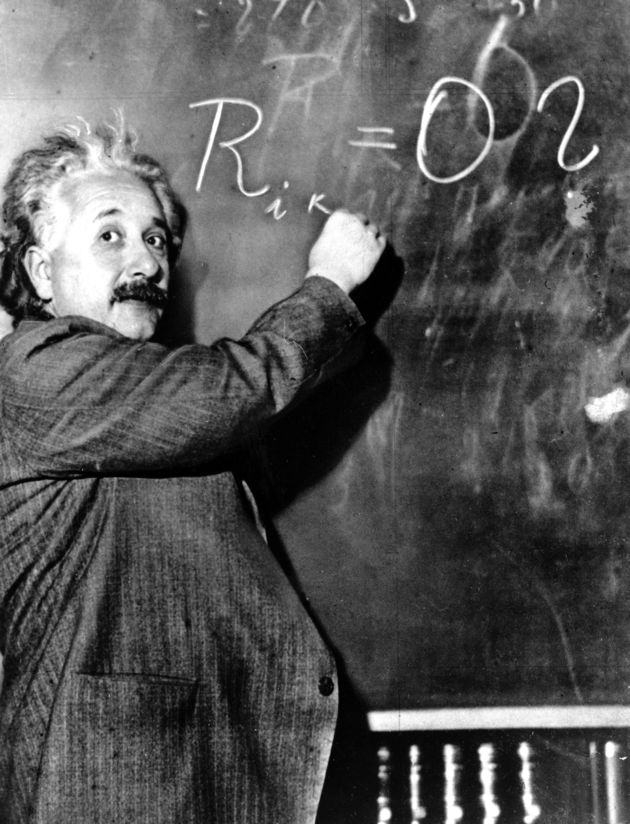Nobel Prize Winners Live Longer

Winners live longer, at least when it comes to the Nobel Prize, new research shows.
An analysis of 524 nominees for the Nobels in physics and in chemistry between 1901 and 1950 showed that the group’s 135 winners lived about two years longer than the also-rans. The finding points to the health benefits of social status and suggests that status benefits the bodies of the cerebrally normal too.
Anyone can see that the rich and famous tend to live better and longer than the poor and ordinary, but scientists have been unclear on whether social status was an indirect or direct cause of longevity.
The new research by an economist at the University of Warwick in England and his colleague argues that the link is direct, at least for Nobel Prize winners, upon whom status is suddenly dropped. And the research rules out the possibility that intervening prize-related money itself adds the years through improved prosperity. The research paper was posted Wednesday to Research Papers in Economics (repec.org).
“Status seems to work a kind of health-giving magic,” said Andrew J. Oswald, the lead scientist on the study. “I was quite surprised to find a clear effect on longevity within this elite sample of scientists.”
The average lifespan for the nominees (including winners) was 76 years. Winners worldwide lived 1.4 years longer on average, and winners from the same country as non-winning nominees lived another two-thirds of a year, on average.
Bored with money
Get the world’s most fascinating discoveries delivered straight to your inbox.
Nobelists are awarded a percentage of their income as prize money, currently ranging from $1 million to $1.5 million, but most laureates donate at least a portion of their award money to charity and academia. Also, Oswald compared the possible effects of variations in the real value of the purse size during the 1901 to 1950 era and found no effect on longevity, suggesting that it is the sheer status of the Nobel on scientists that performs the magic.
“They are obsessive thinkers,” Oswald told LiveScience. “They are mostly not hugely interested in dollars, per se.”
Oswald and his colleague Matthew D. Rablen, with the University of Warwick when the research was conducted, also found that the number of nominations for a Nobel that a person might receive had no effect on longevity. Actually winning the Nobel was what counted, they said.
James P. Smith, an expert on social status and health at the RAND Corporation, said the findings came as little surprise. “My research consistently shows that money does not matter for health and [Oswald and Rablen’s] paper confirms it,” Smith told LiveScience. “Other research shows that status matters, an equally controversial conclusion. But their research is well done, so it will add to the debate.”
| SPECIAL REPORT |
Two status studies in 2001 focused on Oscar winners. One found that Oscar winners live 3.6 years longer than nominees. Another on Oscar-winning and nominated screenwriters found the exact opposite—nominees lived 3.6 years longer than winners. Smith said this new research on Nobel winners and nominees is a much stronger study methodologically.
Physics pay-off
Oswald also said he thinks the status from a Nobel Prize could amount to even more today than it did early in the previous century.
“If anything, the global society has made the super-star phenomenon more intense,” he said. “I imagine in 2007 you get a bigger status boost from winning the Nobel Prize than in 1907.”
And if you’re one of those fortunate folks with a talent for both chemistry and physics, you might want to choose the latter for your career. Oswald and Rablen found that Nobel laureates in physics lived an average of almost a year longer than laureates in chemistry.
- The Greatest Modern Minds
- Top 10 Unexplained Phenomena
- SPECIAL REPORT: Toward Immortality
- The Story Behind the Nobel Prize
- Geniuses Are Just Like Us
- Top 10 Immortals
Vote for the Greatest Modern Mind
The Geniuses Behind the Geniuses
Smart People Choke Under Pressure
Simple Writing Makes You Look Smart
Expanse of Knowledge Delays Big Ideas
Robin Lloyd was a senior editor at Space.com and Live Science from 2007 to 2009. She holds a B.A. degree in sociology from Smith College and a Ph.D. and M.A. degree in sociology from the University of California at Santa Barbara. She is currently a freelance science writer based in New York City and a contributing editor at Scientific American, as well as an adjunct professor at New York University's Science, Health and Environmental Reporting Program.
 Live Science Plus
Live Science Plus







